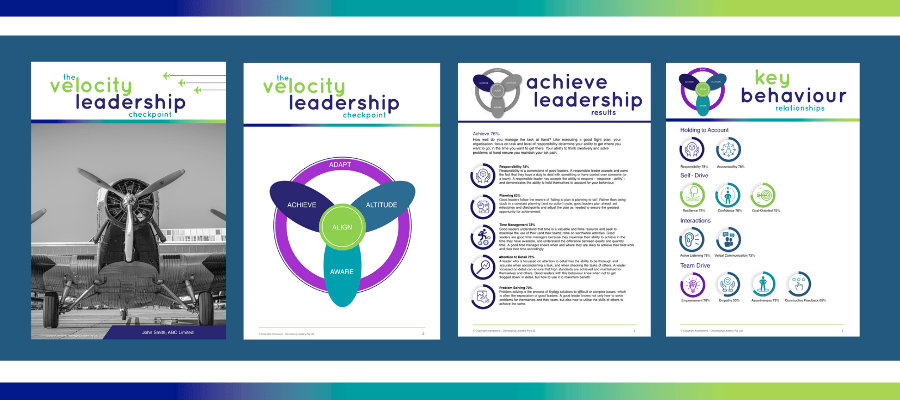Leadership is one of those topics you often hear mentioned when people talk about business. However, despite hearing about leadership, few people genuinely understand what leadership means in the business world. Being an impactful leader is not an easy task. It requires a lot of work and dedication, as well as a certain mindset that allows high-level workers to perform in their role with excellence. So, what does leadership actually mean? Discover more about leaders’ strengths and the true meaning of being a leader.
Providing Vision, Communicating Effectively, and Empowering Others
A great leader is a person who has a vision, can communicate it effectively to others, and empower others to achieve the goal.

Great leaders are:
- Visionary: Leaders have a clear idea of where they want to go with their organization or team.
- Inspiring: People follow them because they believe in what the leader stands for, not just because they have power over them (or a big paycheck).
- Communicative: Good leaders listen as much as they talk–and know how to speak persuasively when explaining their ideas or asking for support from others.
- Understanding: They genuinely care about people’s success at work and home life outside work hours and understand that balance is essential so they can perform better on both fronts.
Being Resilient and Flexible
Resilience is the ability to bounce back from failure. It’s an essential trait for leaders because we never know what setbacks or challenges our teams will face. But, responding to difficulties in a way that promotes growth is one of the most valuable abilities a person can have, both in the workplace and in life.
Flexibility is the ability to adapt to change and roll with whatever hurdles may come. This is another essential quality for great leaders because business conditions change rapidly. Keeping up with those changes requires a high degree of flexibility. Both resilience and flexibility are skills like any other that managers can learn through leadership coaching in Melbourne.
Exuding Confidence
Confidence is a key component of leadership. But don’t confuse confidence with arrogance–it’s more about believing in yourself, your abilities, and your decisions than it is about thinking that you’re better or more important than others.
To be confident, you must:
- Believe in yourself and your ability to do a good job. If you don’t believe you can handle whatever comes up on the job, how will others trust that they can rely on you? How can they trust any decision you make if they don’t think it came from someone who understands what they’re doing? How can anyone respect an individual who doesn’t respect themselves?
- Be willing to fail without letting failure hold you back or define your success thereafter. As long as someone tries their hardest and learns from their mistakes—and doesn’t let those mistakes haunt them—then failure isn’t something to fear; it’s just part of life!

Staying Humble
Though confidence may be necessary, being humble is just as vital. A great leader is willing to admit mistakes, learn from others, and ask for help when needed. They don’t let their achievements go to their head; instead, they celebrate their successes while still keeping an eye on the future. Leaders also have the ability to admit when they were wrong about something or didn’t know something at first. A leadership assessment can be a valuable tool in determining the strengths and shortcomings of management. With this information, they can acknowledge their weaknesses and learn how to transform them into leaders’ strengths.
Remaining Responsible and Accountable
A great leader is responsible for the success or failure of their team. Does this mean that you should take responsibility for everything? No, but it does mean that if something goes wrong, you should own it and figure out how to fix it. This may be a difficult pill to swallow, especially if you’re used to blaming others when things go wrong. However, as a leader in any organization, you’re responsible for holding both yourself and your staff accountable for the mistakes made as a team.
Setting and Encouraging High Standards
Perhaps most importantly, a leader is there for their team, setting high standards for excellence and offering them the tools and support they need to succeed. Creating a high standard will make your team feel challenged and like they are continually improving. Remember to encourage positive teamwork and celebrate success, too.
Leadership Is Inspiring Others and Bringing Out Their Best
Leadership in business means inspiring others and bringing out their best qualities and abilities. Anyone can become a leader if they’re willing to do what’s needed to get the job done. With leadership training, you can learn how to motivate your fellow team members to achieve group-wide success.

Business leaders work to:
- Inspire others to achieve goals. They motivate people by showing them the value of their contributions, helping them set goals, and giving them the encouragement they need to meet those goals.
- Encourage people to be the best they can be. A great leader doesn’t just tell someone what needs to be done; they show them how to be their best selves and give them the resources they need to succeed.
- Recognize and reward others’ efforts when appropriate. It shows appreciation for the hard work of their team and celebrates all the hard-won successes of the group.
Outstanding leadership can mean many different things in the business world. Leadership is a mindset, not a title; it’s a commitment to success by doing what’s best for the team and company without letting ego or arrogance take over. Highly effective leaders are confident and humble. They accept responsibility for setbacks and celebrate successes as a team. To become a great leader, you do not need to have the most power; leaders are simply people with a strong sense of who they are and what they want to accomplish. If you want to be a great leader or improve your existing leaders’ strengths, leadership training can help. Visit the Institute of Management and Leadership Development to learn more about our leadership assessments and executive leadership coaching in Melbourne.
Take The First Step In Your Leadership Journey – A Velocity Leadership CheckPoint
Do you know the impact you have on your leader and / or team? Completing a leadership assessment tool to assess your leadership strengths and weaknesses is the first step that Carla took as part of her Emerging Leaders Program journey.

If you are unsure of your impact on your leader / team, perhaps you should complete the Velocity Leadership CheckPoint? 25 behavioural leadership traits, focussed in 5 distinct leadership capabilities – a ‘must know’ for any leader or team looking to drive high performance. If you haven’t completed the CheckPoint, get in touch with us today to arrange an appointment. Read through the comments and feedback from those that have – many say that it has had a profound effect on how they lead and perform within a team.
#leadershipdevelopment #leadershiptraining #IMLD #developingleaders #leadershiptrainingmelbourne #leadershipassessment #leadershipassessmentmelbourne #leadershipprofile #leadershipprofilemelbourne



